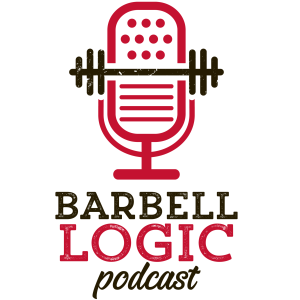
Matt & Niki discuss goal setting: clear goals, digging deep to identify your whys, and how different personalities can effectively develop goals.
If you're trying to lose weight, get stronger, change your nutrition, gain muscle you've at some point identified you'd like to make change the direction of your life. Whether you formally identified your goals or made a quick decision, somehow you identified you didn't like where you were and shifted the trajectory of your life.
If you're trying to lose weight, get stronger, change your nutrition, gain muscle you've at some point identified you'd like to make change the direction of your life. Whether you formally identified your goals or made a quick decision, somehow you identified you didn't like where you were and shifted the trajectory of your life.
What can often happen, though, is that as the process of improvement continues, we can forget why we began. When things get tough, we might not be able to latch onto a clear purpose, and we will struggle to continue.
Goals guide actions. Actions determine metrics. Clear goals create clear actions and metrics. When you've dug deep into why you want to do something, oftentimes the how becomes almost self-evident.
Some perform this process of delving into their whys internally, by themselves and mostly with silent reflection. Others perform it alone but by writing down answers to questions. Others bounce ideas off other people, seeking some feedback and refining what is essentially their rough draft ideas.
The 5 whys is a good process, and really highlights how effective goal-setting is finding your deeper purpose.
Once you've hit your why, you often have a physical reaction. It's emotional. It resonates. It's not superficial or some cliché or thing you've been told you should care about.
A superficial goal is often an unsustainable goal.
If you've been floundering on identifying how to achieve your goals, you might not have pinned down your goals.
Now, you can get after the hows.
Before you start pursuing action, you might try an intermediate step and ask (and then answer as best you can): why haven't I achieved this? This can help you identify obstacles and hurdles, which you should account for in your actions.
You develop your actions to achieve the goals. These should be specific and timebound. You should be able to identify with a yes or no answer if you accomplished them.
Your metrics inform the actions and the goals. They give your information so you know if you're heading in the right direction. Metrics help you make decisions. So, if you're tracking something and unhappy with your progress, you should change what you're doing. If tracking a metric does not change behaviors, you shouldn't track it.
You should be able to clearly express your goals to others (and yourself). To ensure you can do this, write your goals down. If you can't clearly define your goal--or if others don't understand it when you're sharing it--you need to do some more work to ensure you understand what you really want.
They end by asking, is getting the goal really the goal? As with strength, the process of undergoing voluntary hardship refines us. We're glad we get stronger, but doing what it takes to get strong makes us a better person, beyond getting stronger.
This leads into a cursory discussion of a future but not-too-far-off podcast: habits. Building healthy habits will lead to health. The habits are oftentimes more important than the goal.
GET STARTED with one-on-one online coaching FOR FREE!
Get your FIRST MONTH FREE on all strength and nutrition coaching plans. No discount code needed and includes a 10-day, no obligation trial. https://bit.ly/2MKeOoh
Special offers from BLOC and our partners: https://barbell-logic.com/offers/
Connect with the hosts
- Matt on Instagram
- Niki on Instagram
Connect with the show
- Barbell Logic on Instagram
- Podcast Webpage
- Barbell Logic on Facebook
- Or email podcast@barbell-logic.com
More Episodes
Overcoming Pain & Setbacks - #600
 2024-11-12
2024-11-12
 2024-11-12
2024-11-12
Why You Should Walk More - #598
 2024-10-29
2024-10-29
 2024-10-29
2024-10-29
Tackling Tweaks - Beast Over Burden - #573
 2024-07-30
2024-07-30
 2024-07-30
2024-07-30
012345678910111213141516171819
Create your
podcast in
minutes
- Full-featured podcast site
- Unlimited storage and bandwidth
- Comprehensive podcast stats
- Distribute to Apple Podcasts, Spotify, and more
- Make money with your podcast
It is Free
- Privacy Policy
- Cookie Policy
- Terms of Use
- Consent Preferences
- Copyright © 2015-2024 Podbean.com





